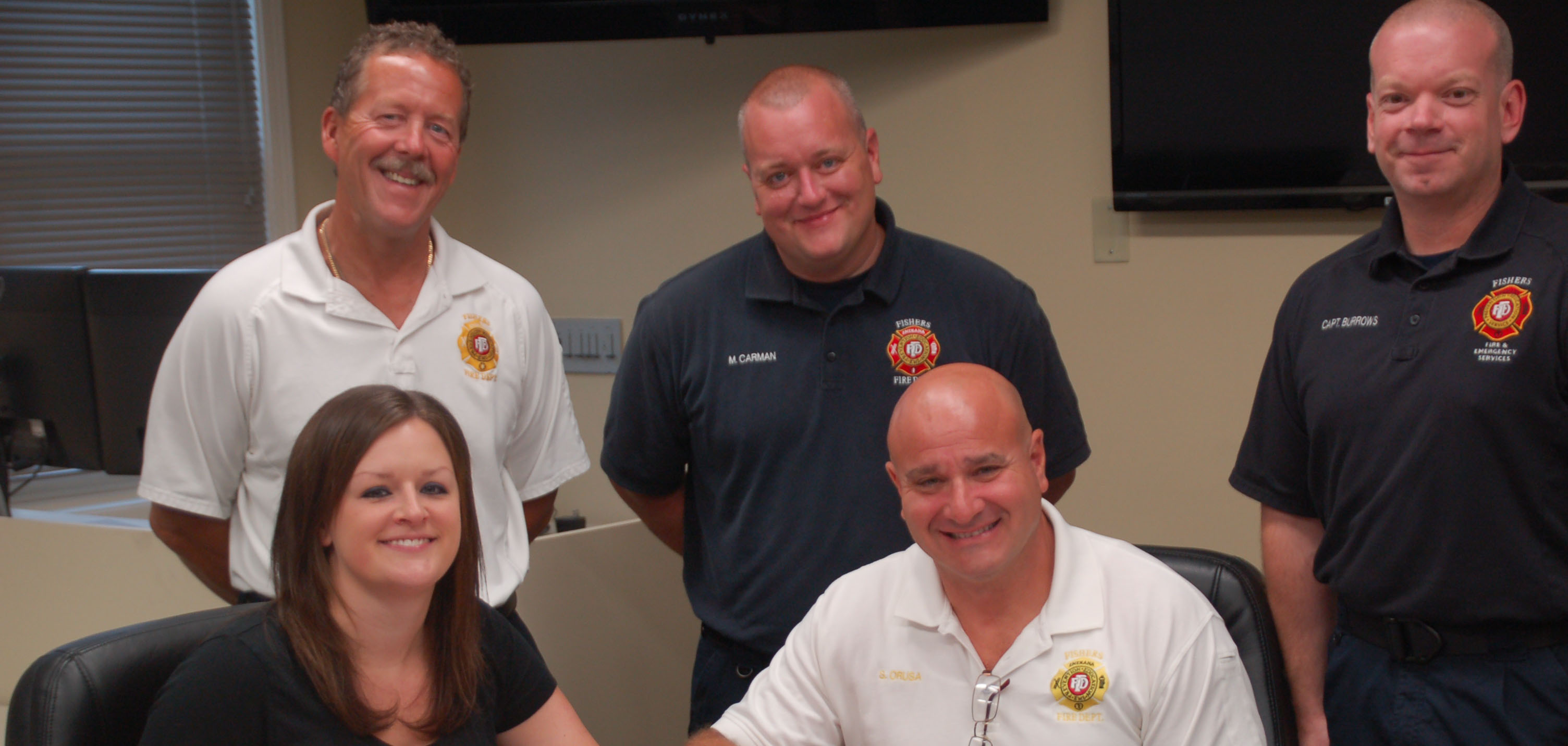
By Mackenzie Klahr
Fishers Fire Dept. Chief, Steve Orusa was selected to serve as the incident commander of the District Five Indiana Management team at a recent federal exercise conducted in Indianapolis.
Incident management teams are specifically trained groups of men and women who assist local law enforcement when various disasters hit on the local, state and national levels.
While at the exercise, the team, which is made up of four other Fishers’ locals, focused on a reaction plan that it would implement in the possibility of a terrorist attack.
“I am confident our government is doing everything it possibly can to prevent this from happening, but that doesn’t mean we don’t have to practice for if it actually does,” Orusa said.
Each district is made up of pivotal roles that are designated to oversee all categories of concern, while the incident commander is in charge of organizing the team as a unit.
Incident management teams are not only used at the federal and state level, but also at a local level. Fishers has an incident management team of its own that drills once a month to become familiar with cases such as plane crashes, white storms, mass causalities and tornados.
Mark Elder, the division chief at the department, works to equip the team for any possible scenario. “It’s the day-to-day stuff they are comfortable with, “Elder said, “it’s trying to bring those things that are strange, that probably will never happen and we hope will never happen, but just in case it makes them think outside of the box on how they would approach.”
All incident management teams work alongside departments who have expertise in the designated areas of conflict. In Orusa’s exercise of a possible terrorist bomb, the team worked with the department of energy to identify the radioactive exposures.
“You interact with federal agencies such as the department of energy who help track the prevailing winds and where the radioactive fallout zones are and that’s at the mercy of weather so that then changes and alters your whole management of the disaster,” Orusa said.
For more information on what to do in case of an emergency and tips you can implement to remain safe, visit Fishers’ ‘Ready’ page at www.Fishers.in.us.



